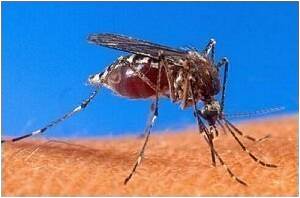A landmark field trial will be carried out in Malaysia, the health minister announced, that will involve releasing genetically modified mosquitoes to fight dengue fever by the end of this year.

"Barring any unforeseen circumstances, the GM anti-dengue mosquito trial will take place by the end of this year," Liow told AFP.
"On my side everything is clear. Now it's under the ministry of natural resources and environment, who will submit the plan to cabinet for final approval," he said.
Malaysia's death rate from dengue fever has spiralled 53 percent this year and the public is being urged to take action to eradicate the Aedes aegypti mosquitoes -- which spread dengue -- from homes and workplaces.
Liow's comments came ahead of a World Health Organization regional meeting starting on Monday in the Malaysian capital.
WHO regional director Shin Young-Soo welcomed the field trials.
Advertisement
In the first experiment of its kind in Asia, 2,000-3,000 male Aedes mosquitoes are to be released in two Malaysian states.
Females of the Aedes species are responsible for spreading dengue fever.
However, environmentalists are concerned the GM mosquito could fail to prevent dengue and could also have unintended consequences.
Critics have said the larvae will only die if their environment is free of tetracycline, an antibiotic commonly used for medical and veterinary purposes.
Dengue infection leads to a sudden onset of fever with severe headaches, muscle and joint pains, and rashes, which can lead to death if left untreated.
Source-AFP













